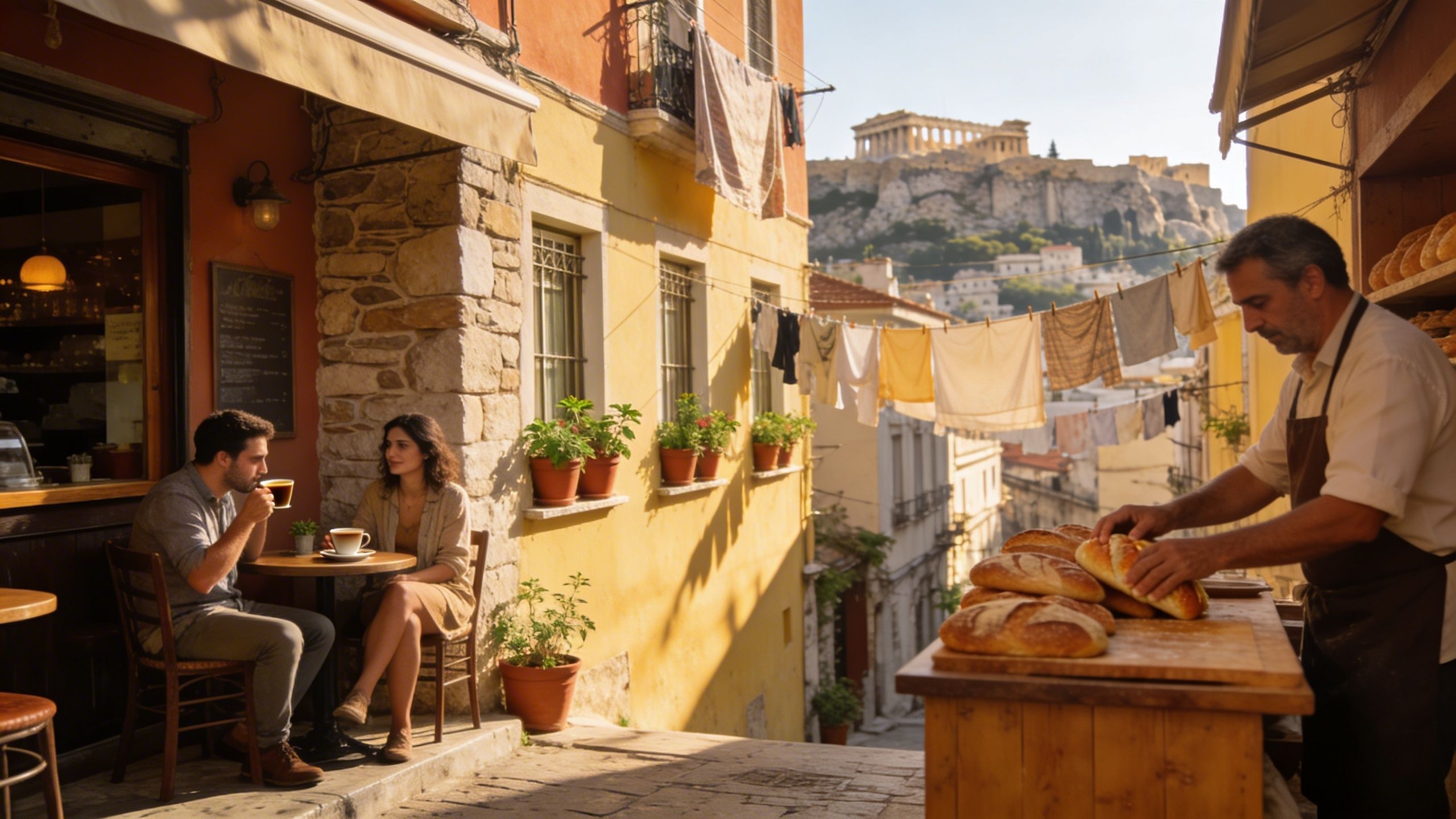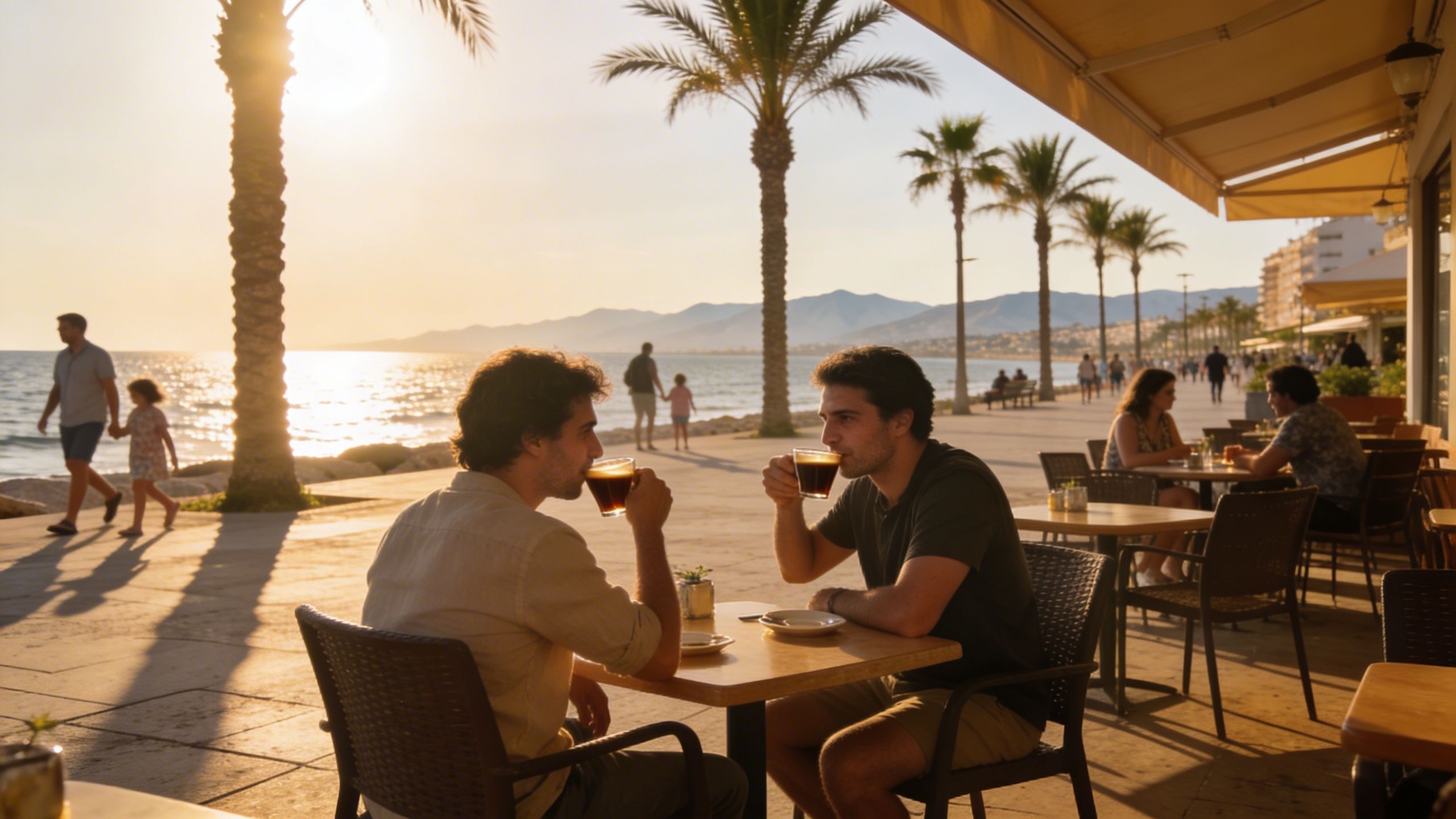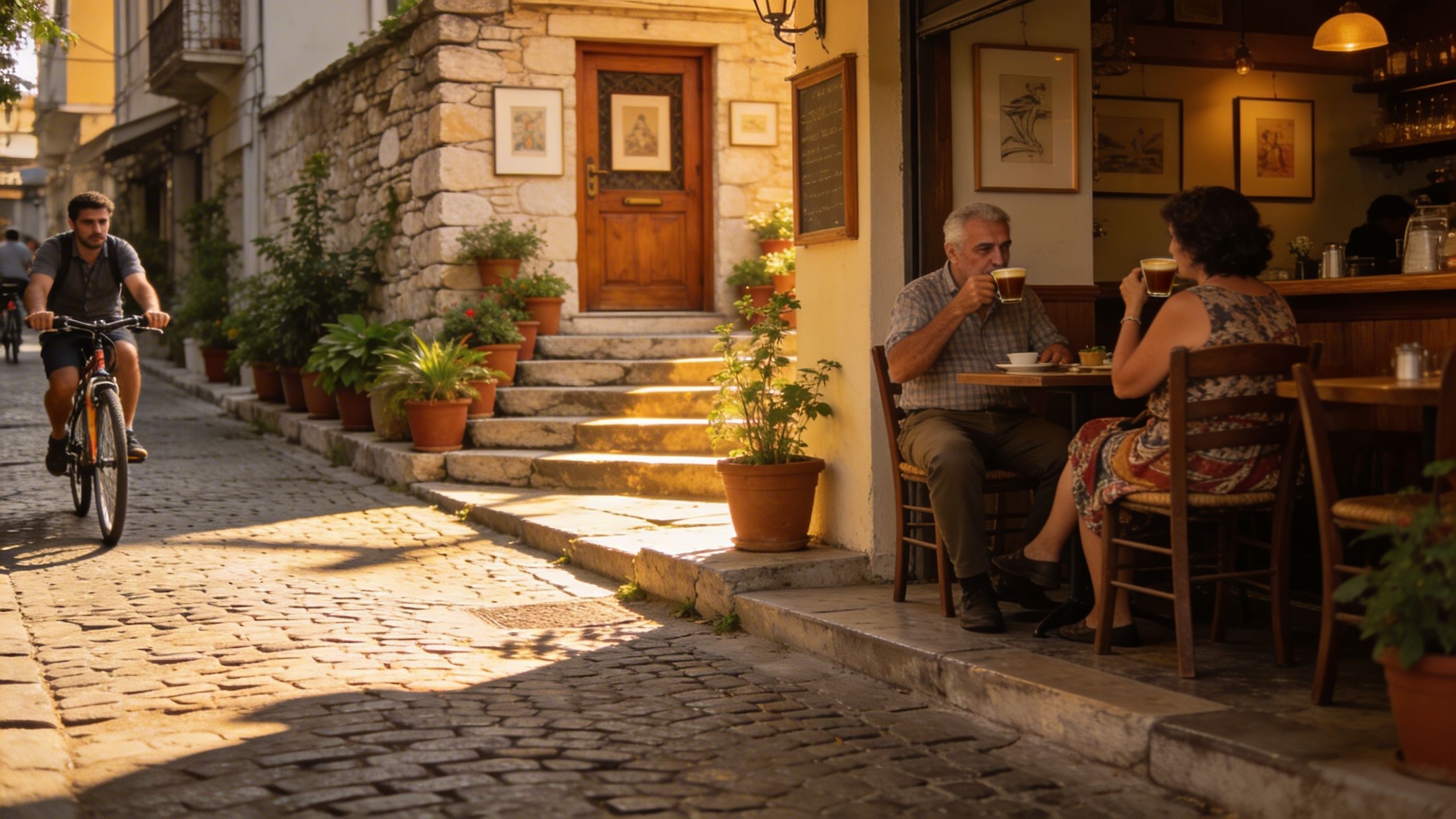When Summer Lies: Off‑Season Greece Reveals Eco Value
Visit Greece off‑season and you’ll see why value hides in quieter towns: seasonal rhythms, retrofit potential and local expertise reveal sustainable opportunities.
Imagine waking before dawn to a tide of orange light over a whitewashed terrace, the scent of lemon trees and sea salt, and a café owner sweeping the narrow lane on Ano Mera as the island stirs. Greece is a place of slow mornings, boisterous evenings and seasons that change both the landscape and property logic — and those rhythms should shape how you begin a property search here.
Living the Greek life: more than postcard beauty
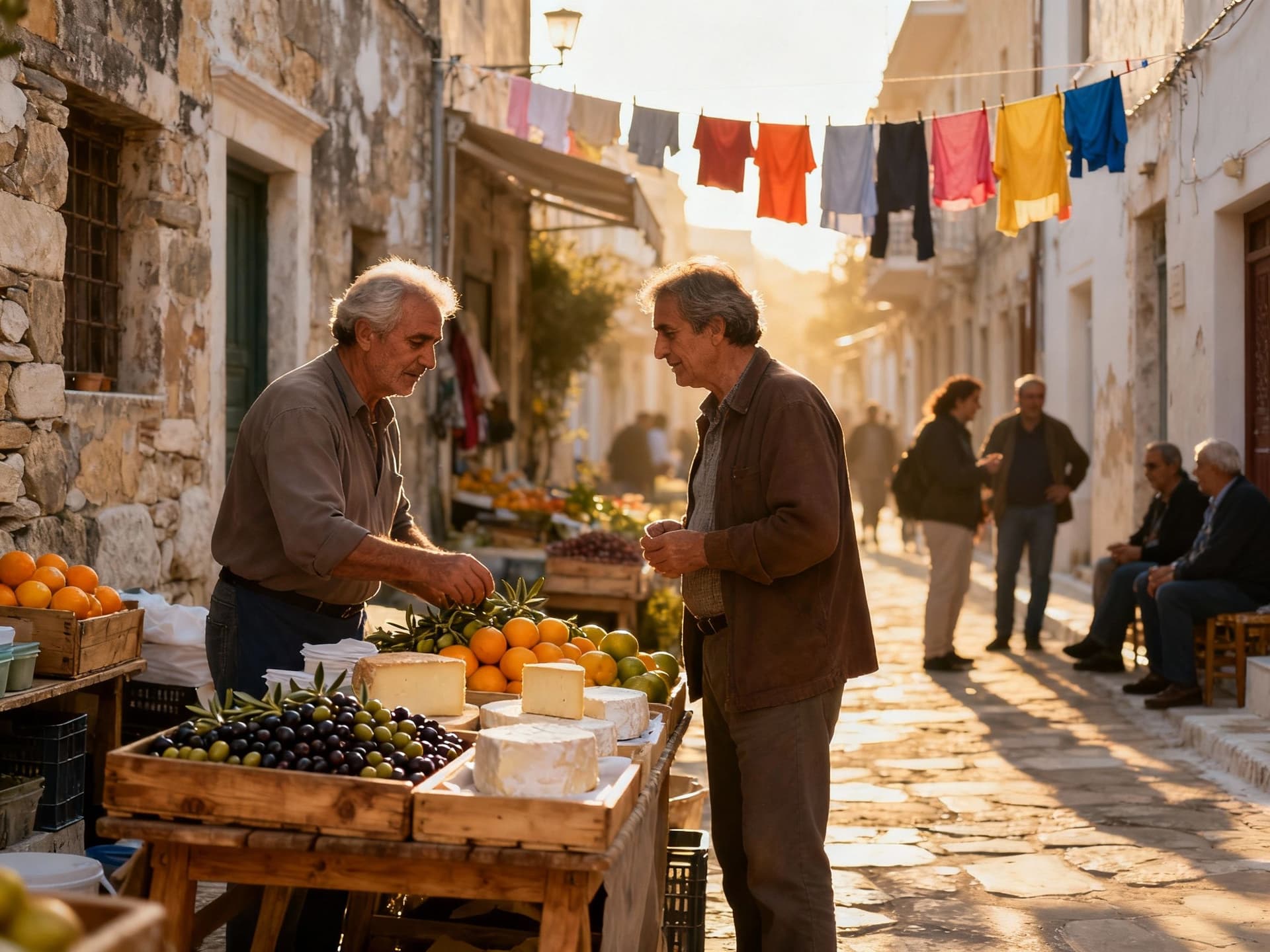
Daily life in Greece is tactile: espresso cups clinking at neighborhood kafeneia, produce piled high at Varvakios market in Athens, fishermen sorting nets by the harbour in Pylos. These rhythms shape what kind of property will truly feel like home — a house with an olive grove for making oil, an attic apartment near a lively square, or a shaded veranda for long, slow meals.
Neighborhoods that teach you the country
Athens offers layering: Kolonaki’s refined cafés and boutique stores, Koukaki’s tight lanes and tavernas near the Acropolis, and Pangrati’s local markets and evening life. On the islands Mykonos hums with high-season energy while Naxos and Syros keep a quieter, year-round community. Each area isn’t just a price bracket — it’s a different daily soundtrack.
Food, markets and the climate that shapes home life
Imagine buying sun‑ripened tomatoes at 8 a.m., pressing them into a lunchtime salad, or harvesting pomegranates in November. Climate and seasonality affect how you use a property: courtyards become outdoor kitchens in summer, and passive solar orientation is a summer/winter comfort strategy. Those small choices — pergola shade, whitewash, thick stone walls — make homes more sustainable and more liveable.
Making the move: practical considerations with an eco lens
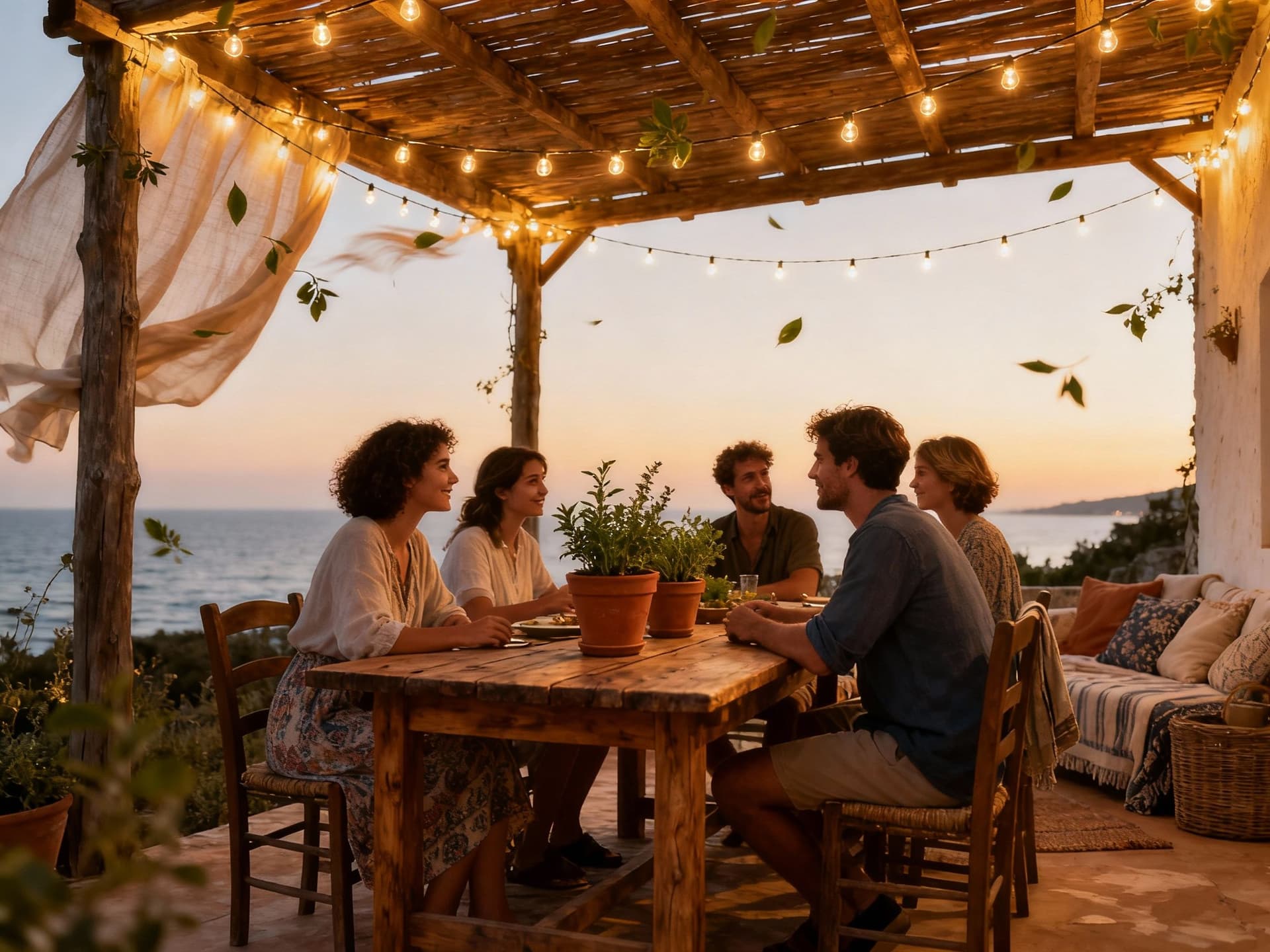
The dream must meet local reality: Greece has seen strong price growth in recent years, but that growth hides variation between Athens, Thessaloniki, and less-traveled islands. Supply constraints and tourism-driven short‑term rentals influence availability and price trajectory, so planning with local market data and an eye for off‑season value is essential.
Property types and how they feel in practice
Stone village houses excel in thermal mass and cool summers but may need insulation upgrades for winter comfort. Newer builds can offer solar-ready roofs and heat pumps but sometimes lack local character. Consider how you’ll live: a courtyard for herbs, a south-facing living room for winter light, and storage for seasonal gear all matter more than floorplans alone.
Local experts: why an agency rooted in place matters
A local agency isn’t just about listings; it connects you to craftsmen, municipal officials, and neighbours. They know which districts enforce short‑term rental freezes, the quirks of building permits in coastal zones, and which renovations will raise both comfort and green credentials. Look for agents who highlight energy upgrades, water-saving landscaping and provenance of materials.
- Steps to blend lifestyle and practical buying (start-to-finish)
- Choose season and place: tour in low season to feel year-round life.
- Prioritise passive features: orientation, thermal mass, shade and ventilation.
- Ask your agent for local permit history and neighbours’ short‑term rental patterns.
Insider knowledge: what expats wish they’d known
Expats often learn the same lessons: buy for how you’ll live in winter and summer, don’t overvalue sea view alone, and invest early in simple energy upgrades. Small things — a deep south‑facing window, a cistern for garden irrigation, an inverter-ready roof — change daily life and running costs more than decorative finishes.
Cultural cues that shape neighbourhood life
Greece prizes community ritual: afternoon siestas in quieter towns, late dinners in summer, and lively market mornings. Learning basic Greek greetings and the rhythm of the local square will open doors. Neighbours often help with access to local tradespeople and seasonal produce — social capital that real estate listings can’t capture.
Longer-term living: stewardship and retrofit potential
Buying with stewardship in mind means seeing a property as a project: olive pruning to restore biodiversity, replacing diesel boilers with heat pumps, or restoring lime plaster. Greece offers energy renovation incentives that can offset retrofit costs — ask local architects about available programmes and typical payback times.
- Red flags and quick checks before you bid
- Unregistered extensions or basements that lack natural light — these can be illegal or unusable as living space.
- Properties heavily marketed for short‑term rentals in districts with pending registration freezes.
- No recent electrical or seismic checks in older stone houses — budget for upgrades.
Conclusion: Greece rewards patience and seasonal curiosity. Tour beyond high summer, prioritise passive and local materials, and work with agents who know municipal rules and sustainable upgrades. The result is not merely a purchase but a place that changes how you live — calmer meals, neighbours who bring figs, and a home that breathes with the seasons.
Swedish advisor who left Stockholm for the Costa Brava in 2019. Specializes in sustainable, sea‑view homes for Scandinavian buyers and green finance insights.
